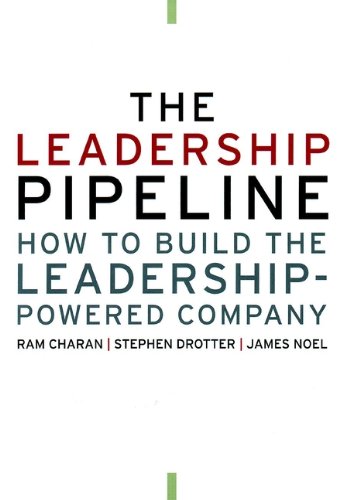RATING


Malcolm Gladwell is a prolific journalist and author. His 2008 book Outliers, paraphrasing the author’s own words, is an effort to overturn crude and simplistic notions of success, specifically of success as being a product of innate talent, ‘hustle’, or intelligence. Gladwell’s central thesis is that success goes beyond any single individual’s talents or qualities – rather, the circumstances and surroundings in which any individual exists play an equally, if not more, important role.
Outliers is divided into two parts: Part 1, titled ‘Opportunity’; and Part 2, titled ‘Legacy’. In Gladwell’s eyes, these two components are the foundation of any individual’s road to success. Both parts are further broken down into chapters, each of which examines a case study and draws key conclusions from it.
The central thrust of Part 1 is that an individual’s success largely depends on the opportunities they receive to exercise their abilities, rather than their abilities per se. Part 2, meanwhile, explains how an individual’s cultural background, family, friends and community also play a deciding role in their success, by shaping mentalities, outlooks, and allowing them to interpret the world in innovative ways. One of the most interesting lessons one can draw from part 2 is the importance of ‘meaningful work’ as a prerequisite to success: Gladwell characterises ‘meaningful work’ as possessing a combination of autonomy, complexity, and a connection between effort and reward.
This book is an ‘outlier’ among common explanations of success. While many books offer motivational messages, Gladwell clearly explains that success is often arbitrary and outside any individual’s control. In the reviewer’s opinion, this is a fundamental lesson to be learnt. Although more enlightened readers may see this as a truism, truth is not dimmed by repetition. Moreover, this book is more than just its central thesis. It offers a range of important conclusions, one of the more interesting being the importance of ‘meaningful work’.
The central thesis of this book is not particularly ground-breaking, and journalist John Horgan went so far as to label the book “oddly anticlimactic, even dispiriting.” Indeed, at its worst, Gladwell’s thesis can be regarded as deterministic and reductionist.
The central limitation of this book for the business reader is this: Gladwell offers no clear methodology or concrete steps the reader could take in order to capitalise on either the opportunities they have or the advantages their legacy may have bequeathed to them. Readers are left to interpret Gladwell’s manifold conclusions in their own way.
In this stunning new book, Malcolm Gladwell takes us on an intellectual journey through the world of “outliers”–the best and the brightest, the most famous and the most successful. He asks the question: what makes high-achievers different?
His answer is that we pay too much attention to what successful people are like, and too little attention to where they are from: that is, their culture, their family, their generation, and the idiosyncratic experiences of their upbringing. Along the way he explains the secrets of software billionaires, what it takes to be a great soccer player, why Asians are good at math, and what made the Beatles the greatest rock band.
Brilliant and entertaining, Outliers is a landmark work that will simultaneously delight and illuminate.
Outliers contains a number of important ideas on what success is and how it is achieved. However, owing to the lack of any clear methodology or recommendations from the author, the reader struggles to find a practical application for them. One possible application is that leaders ought to give their staff ‘meaningful work’ if they want them to excel. Gladwell’s characterisation is that ‘meaningful work’ combines autonomy, complexity and a corelation between effort and reward.
See content on this topic

Sales training for front line along with basic development and coaching principles for line management.
Understanding how leaders must evolve with relation to the evolution of business models, new management models, and the significant changes to the workforce with Digital Natives now making up more than 50% of the workforce globally.
Understand the theory and mechanics of developing and managing a customer-centric and experience-driven corporate culture that is consistent and stable and includes elements of Employee Experience (EX) and Employee Relationship Management (ERM).
Understanding the evolution of leadership styles, management models, organizational structures, performance measurement and guiding change in the evolution of business models from product-centric to customer-centric and even relationship-centric.
Understand how to manage both internal and external digital transformation while considering the landscape for digital business models and the effect on traditional business models. Understanding organizational readiness for transformation and the role of corporate culture in managing transformations.
The changes in consumer behavior, employee behavior, and the evolution of business models in the digital age cause significant difficulties and imperatives for leaders who must develop new skills and evolve their leadership styles to be effective in this fast changing, challenging, and competitive environment.
Understanding how leaders must evolve with relation to the evolution of business models, new management models, and the significant changes to the workforce with Digital Natives now making up more than 50% of the workforce globally.
Understand how to manage both internal and external digital transformation while considering the landscape for digital business models and the effect on traditional business models. Understanding organizational readiness for transformation and the role of corporate culture in managing transformations.
The changes in consumer behavior, employee behavior, and the evolution of business models in the digital age cause significant difficulties and imperatives for leaders who must develop new skills and evolve their leadership styles to be effective in this fast changing, challenging, and competitive environment.
Understanding how to design & manage change/transformation programs in organizations of different sizes. This course will help any size team or organization to better deal with change & transformation on any scale.




 Copy Link
Copy Link
 E-mail
E-mail
 LinkedIn
LinkedIn
 Facebook
Facebook
 Telegram
Telegram
 WhatsApp
WhatsApp
















 Go Back
Go Back
Leave a Reply
You must be logged in to post a comment.